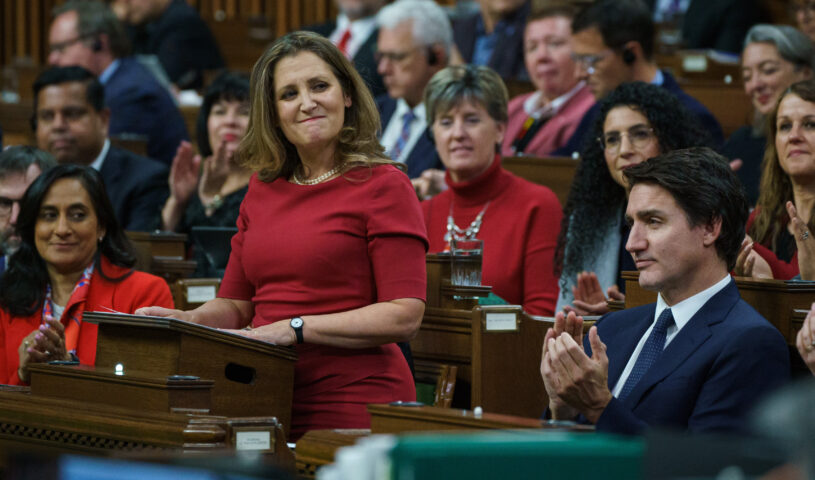FCM’s Big City Mayors calls for new framework for raising municipal revenue
 “As our national population grows, Canadians’ needs are going to evolve as well,” said Federation of Canadian Municipalities CEO Carole Saab. “Local leaders are on the ground every day and know best how to meet those needs.” Photo: Federation of Canadian Municipalities
“As our national population grows, Canadians’ needs are going to evolve as well,” said Federation of Canadian Municipalities CEO Carole Saab. “Local leaders are on the ground every day and know best how to meet those needs.” Photo: Federation of Canadian Municipalities
Mayors of Canada’s largest cities are calling on other orders of government to do more to help municipalities pay for the services they provide.
At a meeting of the Big City Mayors’ Caucus of the Federation of Canadian Municipalities (FCM) held in Ottawa Sept. 28, the mayors called for a new “municipal growth framework” to help local governments deal with a host of economic and social challenges ranging from the housing crisis and inflation to mental health.
“As our national population grows, Canadians’ needs are going to evolve as well,” said FCM CEO Carole Saab. “Local leaders are on the ground every day and know best how to meet those needs.”
What is needed is for the role of municipal leadership to be recognized in a way that empowers communities to grow as the country grows.,” said Saab. “It will require all orders of government working together, and increasingly, partnerships across industry, civil society, the non-profit sector, and more.”
Challenges Outpacing Ability to Deliver Solutions
Canada’s population recently surpassed 40 million, yet local governments only receive eight to 10 cents for every tax dollar that is collected. At the same time, municipalities are expected to provide essential infrastructure for more homes, well-maintained roads and bridges to transport goods, reliable transit systems so people can get around, as well as mitigate and protect against the effects of climate change. To do all this, FCM is making the case that municipalities are going to need a modernize fiscal framework that better links municipal revenue with demographic and economic growth.
Mike Savage, Halifax Mayor and Chair of FCM’s Big City Mayors’ Caucus, said large cities have a “critical role and responsibility” in addressing economic and social challenges.
“The pace and intensity of those challenges are rapidly outpacing cities’ abilities to deliver timely, compassionate, and effective solutions,” Savage said in a press conference.
“Cities and municipalities have had to take on new responsibilities with respect to health, social services, housing, and economic development,” Savage said. “Longstanding services like policing, waste management, and water and wastewater services are becoming more and more complex due to the challenges linked to mental health, homelessness, and climate change.”
Future of Canadian Quality of Life
At its annual conference in May, FCM adopted a resolution calling on federal government and provincial and territorial governments to engage with FCM and provincial and territorial municipal associations in the development of a Municipal Growth Framework, which it defines as a process that allows new sources of municipal revenue – including predictable intergovernmental transfers and new direct taxation powers – to be proposed, evaluated and implemented.
While the post-pandemic recovery gas has boosted provincial and federal revenues, municipal revenue, mainly property tax, have stagnated or declined in the last five years when you adjust them to inflation, Savage said.
“Canada’s pressing national challenges are shared between all orders of government – municipal, provincial, territorial, and federal – and can only be solved if all of us are working together,” said Savage. “It is only through smart collaboration among governments and other partners that Canadian municipalities can become better empowered to improve quality of life for all Canadians.” MW
✯ Municipal World Executive and Essentials Plus Members: You might also be interested in Greg Crone’s article: Fiscal new deal for municipalities inches forward.
Ibrahim Daair is staff writer at Municipal World.
Related resource materials:



